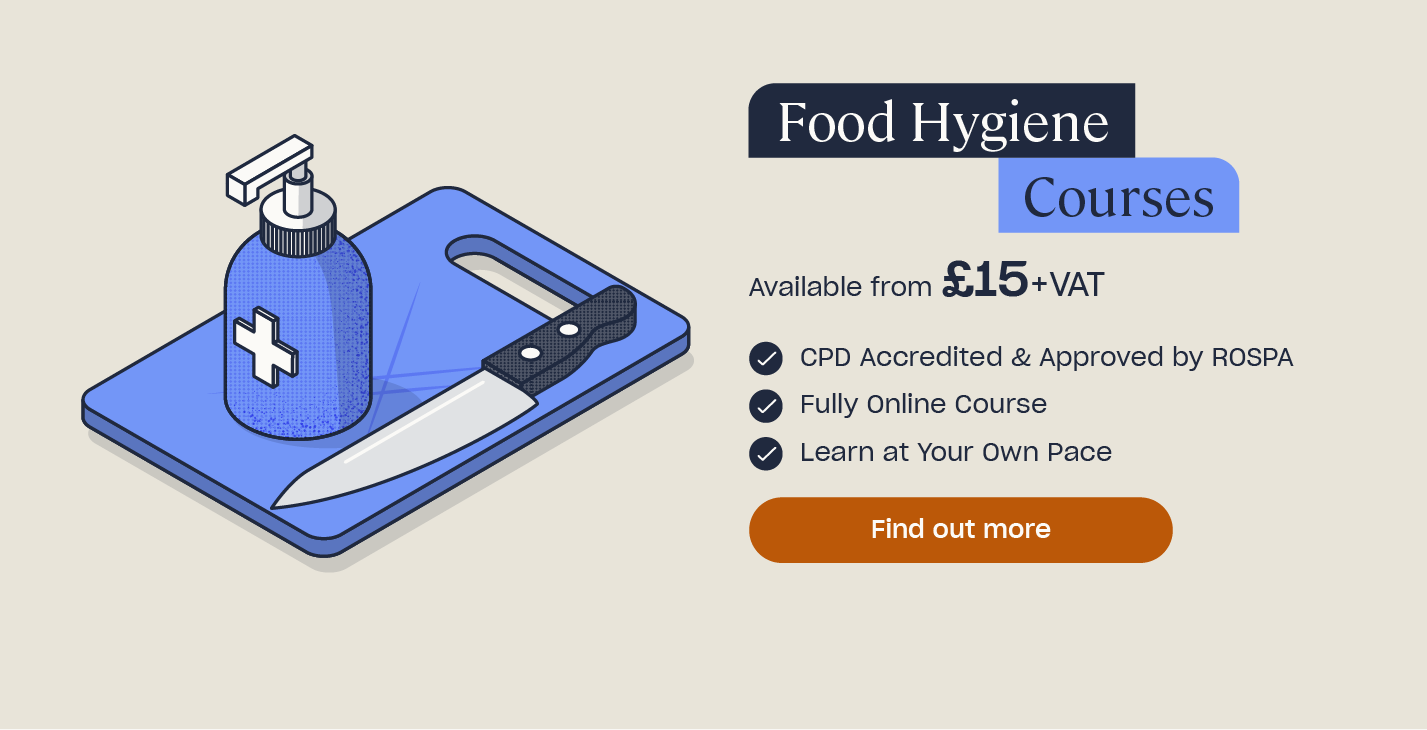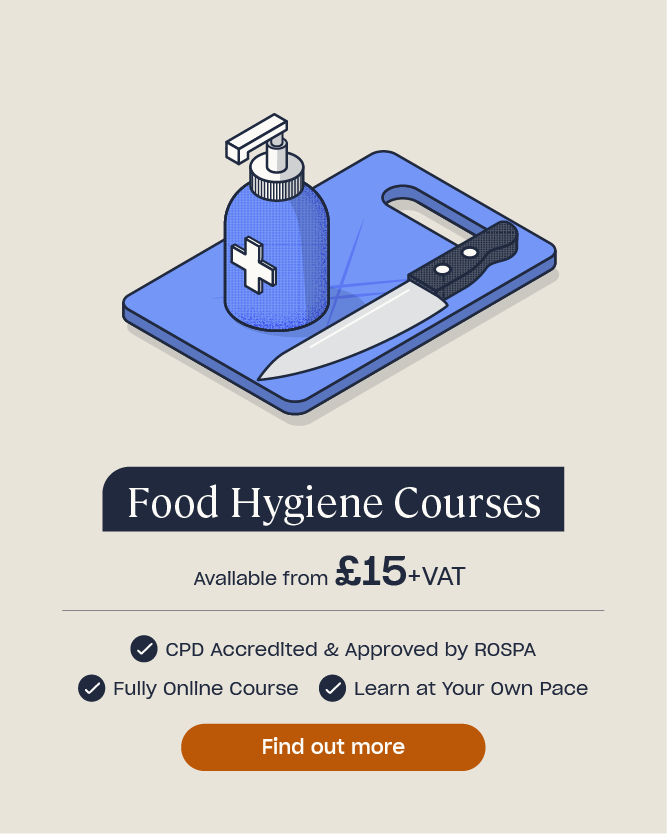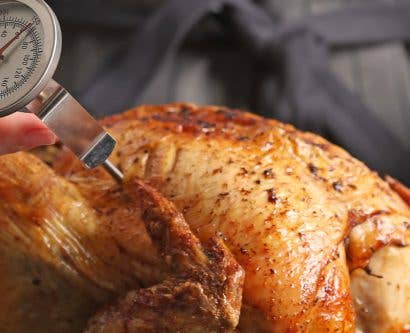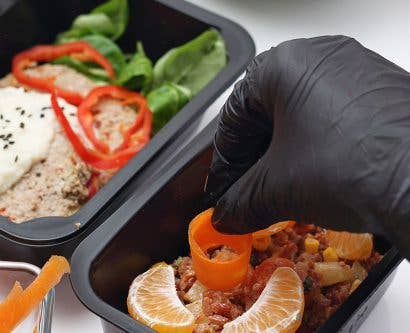How to Prepare for an EHO Inspection: Free Checklist
Food hygiene inspections are a vital and unavoidable part of running a food business. Not only do they serve to protect the public, they also present you with the opportunity to showcase your commitment to trading safely and legally. Your business should always be inspection ready as inspections are often unannounced, so you must ensure that you are consistently maintaining high standards. However, there are processes that you can and should have in place to ensure that your business is always inspection ready.
In this article we will outline what to expect during a food hygiene inspection and how to ensure you have a successful inspection. We will also provide you with a checklist to assess your current food safety practices and help you to stay inspection ready at all times.
What is an Environmental Health Officer?
Environmental health officers (EHOs), also known as environmental health practitioners, assess the safety of businesses to ensure that they are following the necessary health and safety regulations. Though most commonly associated with the food sector and hospitality industry, EHOs inspect many different types of businesses in order to keep the public safe from harm. When inspecting a business, EHOs will assess whether the correct standards are being maintained to keep members of staff, the public and customers safe.

Food hygiene inspections are conducted by EHOs from your local authority. They often arrive unannounced and will use the Food Standards Agency’s (FSA) Food Law Code of Practice to assess the safety of your business. There are three main areas that a visiting EHO will assess when inspecting your premises; food safety and hygiene procedures, structural requirements and confidence in management. It’s important that your business is compliant in all three areas as a poor score in one category can reduce your overall rating. You can learn more about how the Food Hygiene Rating Scheme (FHRS) scoring system works in our article, here.
What Powers do EHOs Have?
Though they can work in either the private or public sector, EHOs predominantly work with local authorities which makes them government officials. As officials they have various powers that you must be aware of before an inspection.
The powers of an EHO include:
Power or Right of Entry – EHOs are allowed to visit a premises at any time as long as that time is considered reasonable, usually within business operating hours. They do not have to give you notice before they visit unless you run your business from home, in which case you will be given 24 hours notice. It’s illegal to refuse an EHO entry and if refused entry they can apply for a warrant through a magistrate and enter the premises using reasonable force. Refusing entry is an offence for which you can be prosecuted and fined. They can also be accompanied by whomever they think appropriate in these situations, such as the police. Under this right of entry, EHOs can access, inspect, seize and detain any records, in whatever form they are held, relating to the food business.
Power to Seize – As part of their inspection EHOs can take photographic and video evidence of what they have seen. They can also seize food that they suspect to be unfit for consumption. If an EHO suspects that food is likely to cause food poisoning or has been contaminated by a disease communicable to human beings, they can either give notice to the food business operator (FBO) who must then remove the food, or they can seize the food and remove it in order to have it dealt with by a justice of the peace (also known as a magistrate). If the justice of the peace agrees with the EHOs view that the food is unsafe for consumption, then it must be destroyed or disposed of and any expenses reasonably incurred in connection with the destruction or disposal, must be covered by the FBO.
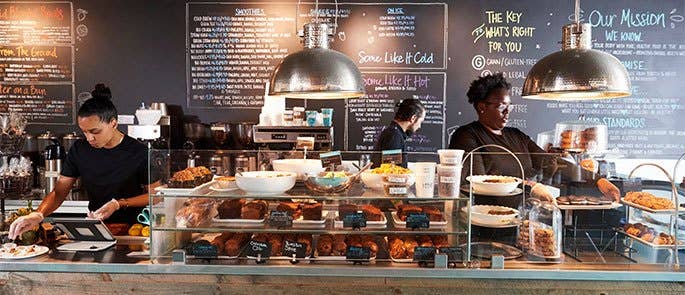
Power to serve legal notice – If an EHO finds that you are not meeting the necessary legal requirements, they have the power to serve you with a legal notice. There are two types of legal notice which an EHO can serve. These are:
- Hygiene Improvement Notice – An EHO will serve a Hygiene Improvement Notice if they have reasonable grounds to believe that a food business is failing to comply with hygiene regulations. The notice will state the EHO’s grounds for believing the food business is failing at compliance, specify the matters which constitute failure to comply and specify the measures that must be taken to secure compliance. The FBO will then be required to take those measures within a set period of time. Any person who fails to comply with a Hygiene Improvement Notice commits an offence and could be prosecuted.
- Hygiene Emergency Prohibition Notice – If an EHO believes that there is immediate risk of harm to the public they will issue a Hygiene Emergency Prohibition Notice which prohibits a business from operating. An EHO will then apply for a Hygiene Emergency Prohibition Order through a justice of the peace. If the Order is provided then a business cannot legally operate until the EHO determines that the business is no longer a risk. Anyone who tries to operate irrespective of the Order is committing an offence and could be prosecuted. A business can oppose the Order and if successful, apply for compensation for loss of earnings.
Power to prosecute – EHOs do not have the power to arrest individuals, however they do have the power to prosecute. An EHO can recommend prosecution for the breach of hygiene regulations and they can begin prosecution proceedings in a court of law. Prosecution could result in fines, being banned from running future businesses or even imprisonment.
What do Food Inspectors Look for?
During an inspection, an EHO is looking for evidence that your business trades safely and legally and that you are complying with food hygiene regulations. Using the Food Law Code of Practice they will assess your business in three categories.
The three assessment categories are:
- Food Safety and Hygiene Procedures – how hygienically the food is handled and how it is prepared, cooked, re-heated, cooled and stored.
- Structural Requirements – the physical condition of your business including cleanliness, layout, lighting, ventilation, pest control and other facilities.
- Confidence in Management – how you manage ways of keeping food safe, looking at processes, training and systems to ensure good hygiene is maintained.
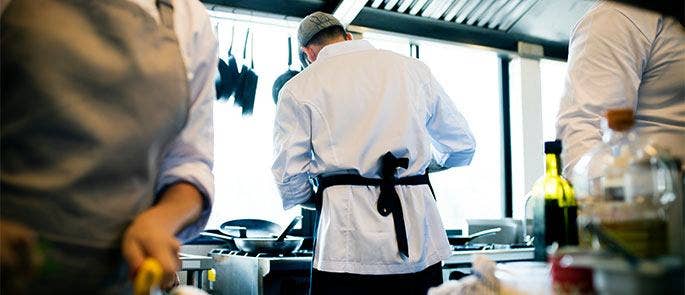
As part of their inspection, an EHO will take pictures, speak to any member of staff they wish and take samples of food if deemed necessary. It’s also likely that they will want to see your food management system as it’s a legal requirement for all food businesses to have a Hazard Analysis and Critical Control Point (HACCP) based system. EHOs can review any documentation relating to your business so it’s important that you have clear, well organised documentation ready to hand at all times to show when necessary. You can learn more about the three categories and gain an in-depth understanding of the FHRS scoring system here.
A food hygiene inspection can be a daunting experience, particularly because they are often unannounced. However, it’s important to remember that a visiting EHO is not your enemy. Their job is to keep the public safe and they want to see your business succeed and trade safely just as much as you do. Be respectful, provide them with the necessary information and don’t be afraid to ask questions. If you are complying with all food safety regulations then you should have nothing to worry about.
Inspection Checklist for a Food Premises
Every food business should aim for a rating of 5, indicating that hygiene standards are very good. A good hygiene rating shows the public that you are trading safely and legally and establishes your business as a safe place to visit and eat. Moreover, for mobile caterers some events will only let traders have a pitch if they meet a set minimum food hygiene rating.
Whilst there are various different ways in which you can prepare especially for an inspection, a visiting EHO will want to see an accurate representation of your day-to-day running. Since you are unlikely to know when an inspection will occur, this means that you can’t spend the night before deep cleaning every nook and cranny in preparation for a visit the next day. As such, it’s vital that you are maintaining high standards at all times so that you are always prepared for an inspection. This also means that all staff need to have a basic understanding of food hygiene and the practices you have in place to keep the public safe as an EHO can talk to any member of staff, not just the FBO or management team.

A useful way to ensure that you are always inspection ready is to use a checklist. Checklists can serve as a guide against which you can ascertain whether you are maintaining high standards. They can also become a regular part of your routine and used as a weekly or monthly walk-through tool to spot incidents of non-compliance before an inspection and before it causes undue harm.
To help you stay inspection ready we have developed a checklist that you can print and use to check the food safety standards of your business. The checklist covers the three key areas that will be assessed during a food hygiene inspection. Your rating is based upon what an EHO sees on the day of inspection, so it’s vital that you are consistent with your food safety practices. You can use the checklist to identify processes that are working well and to spot areas for improvement. If you spot areas for improvement and answer ‘no’ to any of the checklist questions, you must correct it as soon as possible and note what actions were taken to rectify the problem.
The checklist is not exhaustive and should not be your sole means of checking the efficacy of your food safety processes. Nevertheless, it is a useful tool and a great starting point for knowing the areas that need improvement and the areas in which standards are already high.
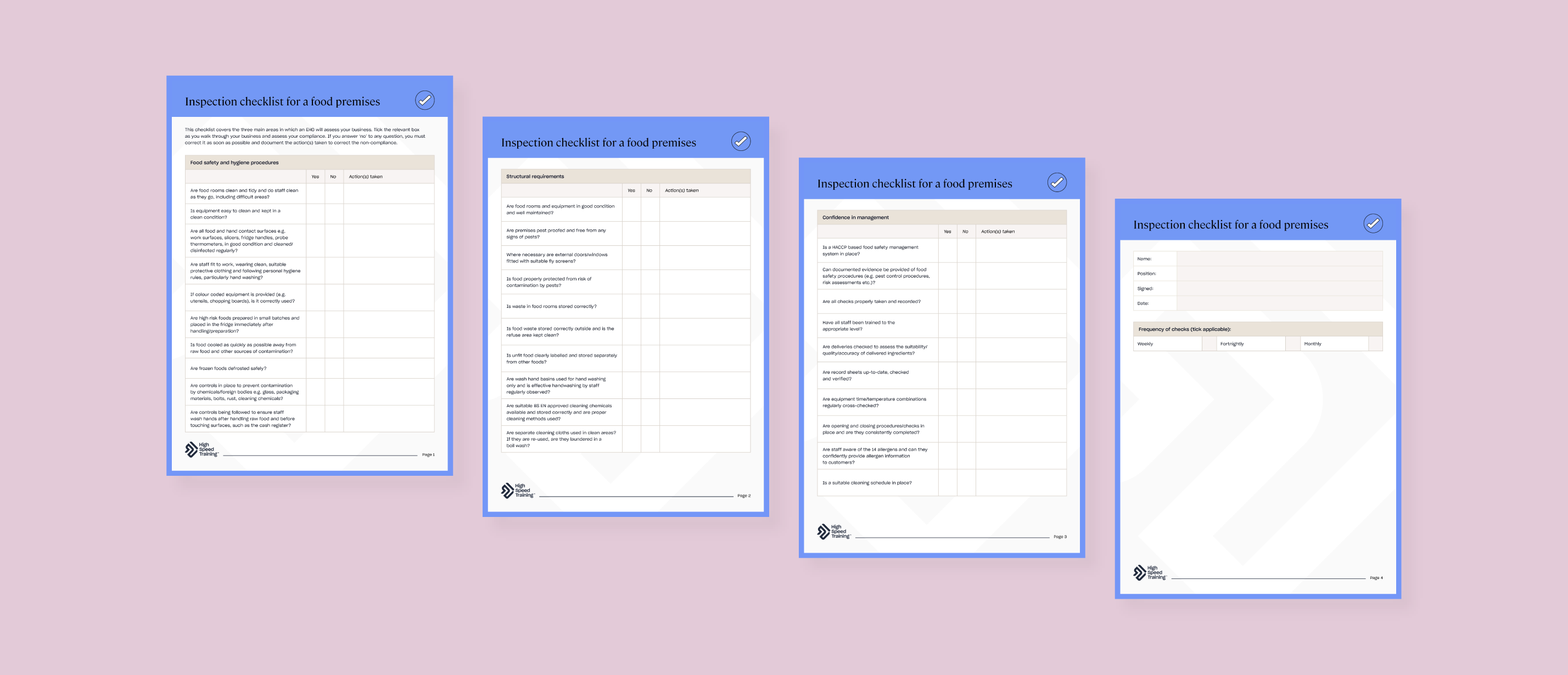
If you are following the necessary health and safety regulations then you are already prepared for an EHO inspection. However, measures such as our pre-inspection checklist and comprehensive staff training, can help you to ensure that these standards are maintained and well documented, making an EHO inspection no different from any other day at your food business.
Further Resources:
- The Food Hygiene Rating Scheme Explained: Answering your FAQs
- Why is Food Hygiene Training Important?
- Food Hygiene Courses


